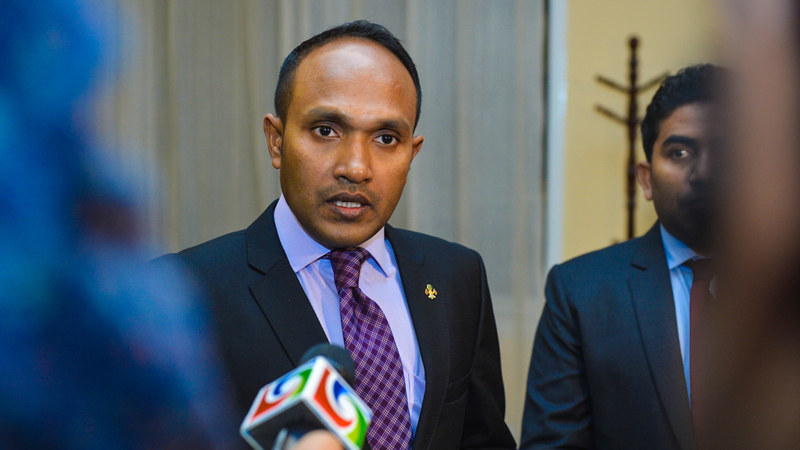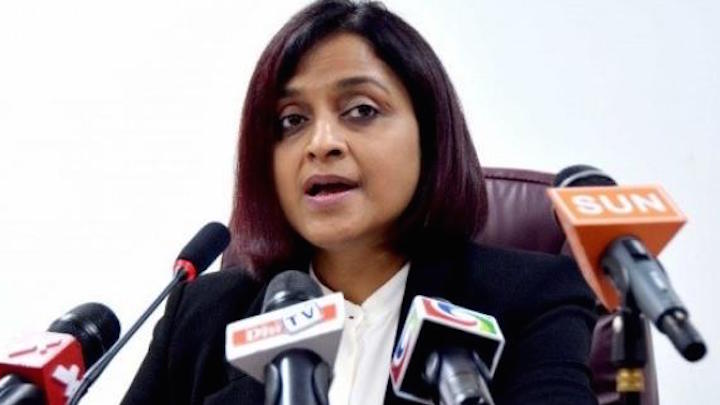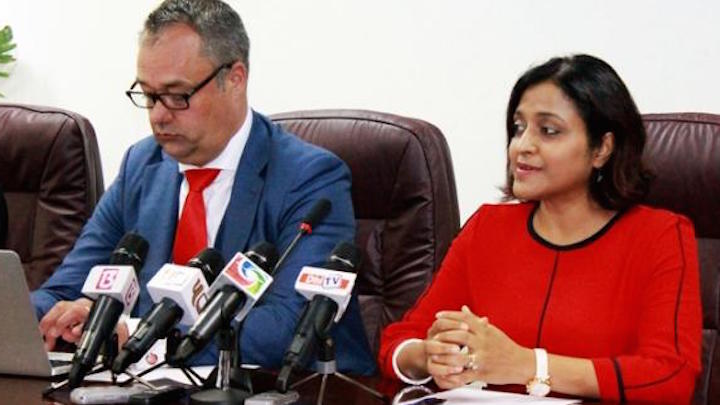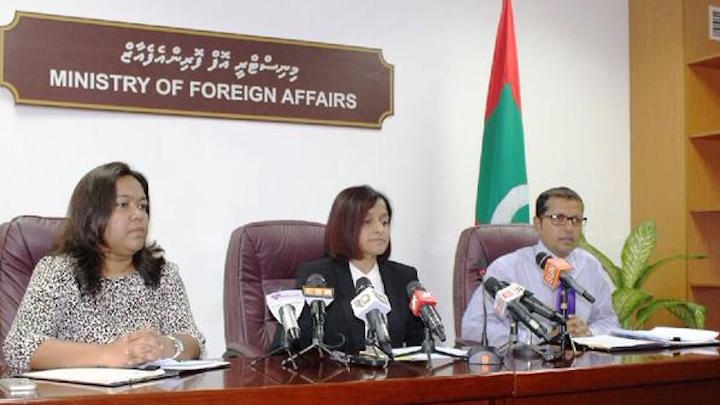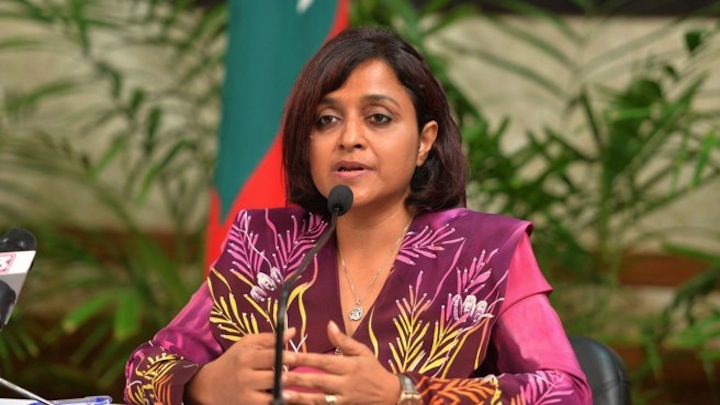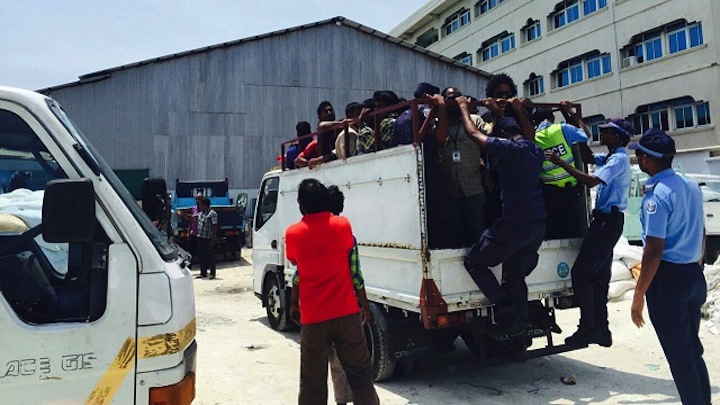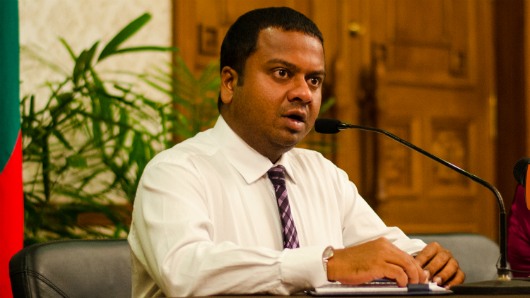Appealing to lawmakers to support the Maldives’ continued membership in the Commonwealth, vice president Dr Mohamed Jameel has said that quitting the intergovernmental body will adversely affect the Maldivian youth, women and business community.
The People’s Majlis, at the request of president Abdulla Yameen, is set to debate the benefits of Maldives remaining in the Commonwealth today.
Some member states are lobbying the body’s democracy and human rights arm, the Commonwealth Ministerial Action Group (CMAG), to take punitive action against the Maldives over alleged repeated violations of the organization’s principles, including the jailing of former president Mohamed Nasheed.
Quitting the Commonwealth will be a huge mistake, Jameel said in a statement issued from London today. “We should never allow the heat of politics to cause long lasting damage to national interests.”
The vice president noted that many of Maldives’ important partners are Commonwealth member states, including India, Sri Lanka, Bangladesh, Singapore, Malaysia, the UK, Australia, Canada and New Zealand.
Continued good relations with Commonwealth member states is vital for the Maldives’ economy and security, he said. “It will be extremely naïve to think that snubbing an association in which our neighbours and partners play a leading role will not undermine our relations with them,” he said.
“It will be particularly foolhardy to quit the Commonwealth to spite the Commonwealth Ministerial Action Group at a time when regional countries like India, Sri Lanka and Pakistan are sitting on CMAG,” he added.
Jameel is meanwhile facing impeachment by the People’s Majlis. A vote is expected on July 21. He abruptly left the Maldives within a day of the parliament approving a constitutional amendment that will allow President Yameen to replace him with the tourism minister.
The ruling Progressive Party of the Maldives’ attempt to impeach Jameel is the latest in a series of dizzying turn of events in Maldivian politics. The opposition backed the constitutional amendment in exchange for opposition leader Nasheed’s transfer to house arrest. Subsequently, the opposition and the government began talks in late June, raising hope of an end to a six-month long political crisis.
Diplomatic pressure has been mounting on President Yameen to release Nasheed and other jailed politicians, including two ex defense ministers, a former ruling party MP and the leader of the religious conservative Adhaalath Party.
The Maldives was first placed on the CMAG agenda after Nasheed’s ouster in 2012. A Commonwealth backed inquiry found the transfer of power to be legal.
As efforts to place Maldives on the CMAG’s agenda for a second time intensified in July, foreign minister Dunya Maumoon threatened to leave the Commonwealth, claiming the “country’s economy and democratic governance suffered significantly” as a result of the events of 2012.
The CMAG, however, decided not to review the Maldives at a recent meeting in London.
Jameel today praised Dunya for her “policy of engagement” and said her efforts had prevented the Commonwealth from taking punitive steps against the Maldives.
Calling on the Maldives to foster existing relationships, Jameel noted that many of Maldives’ students study in Commonwealth countries and benefit directly or indirectly from opportunities linked to the Commonwealth.
As a developing country, Maldives also benefits from various capacity building programmes in the Commonwealth, he said. The inter-governmental body plays a vital role in supporting the integration of small states into the global economy.
While maritime security is an important priority for Maldives, the partners it relies on for operational capacity and effectiveness are mostly from the Commonwealth, he said.
“At every major challenge the Maldives had faced over the past 30 years, the Commonwealth has proved to be a vital partner, supporting, guiding and assisting us to attain success. These include strengthening national sovereignty through the small state security initiative in 1989, claiming a vast portion of the Indian Ocean and its seabed to expand our national wealth in 2010, or in supporting democracy-building as in 2005-2008, and facilitating national healing through supporting the work of the Commission on National Inquiry in 2012,” he added.
President Yameen in November 2014 had declared a foreign policy shift to the East, claiming that economic cooperation with China does not involve the same challenges to remaining an Islamic state as posed by some Western powers.
The Maldives joined the Commonwealth in 1985.
